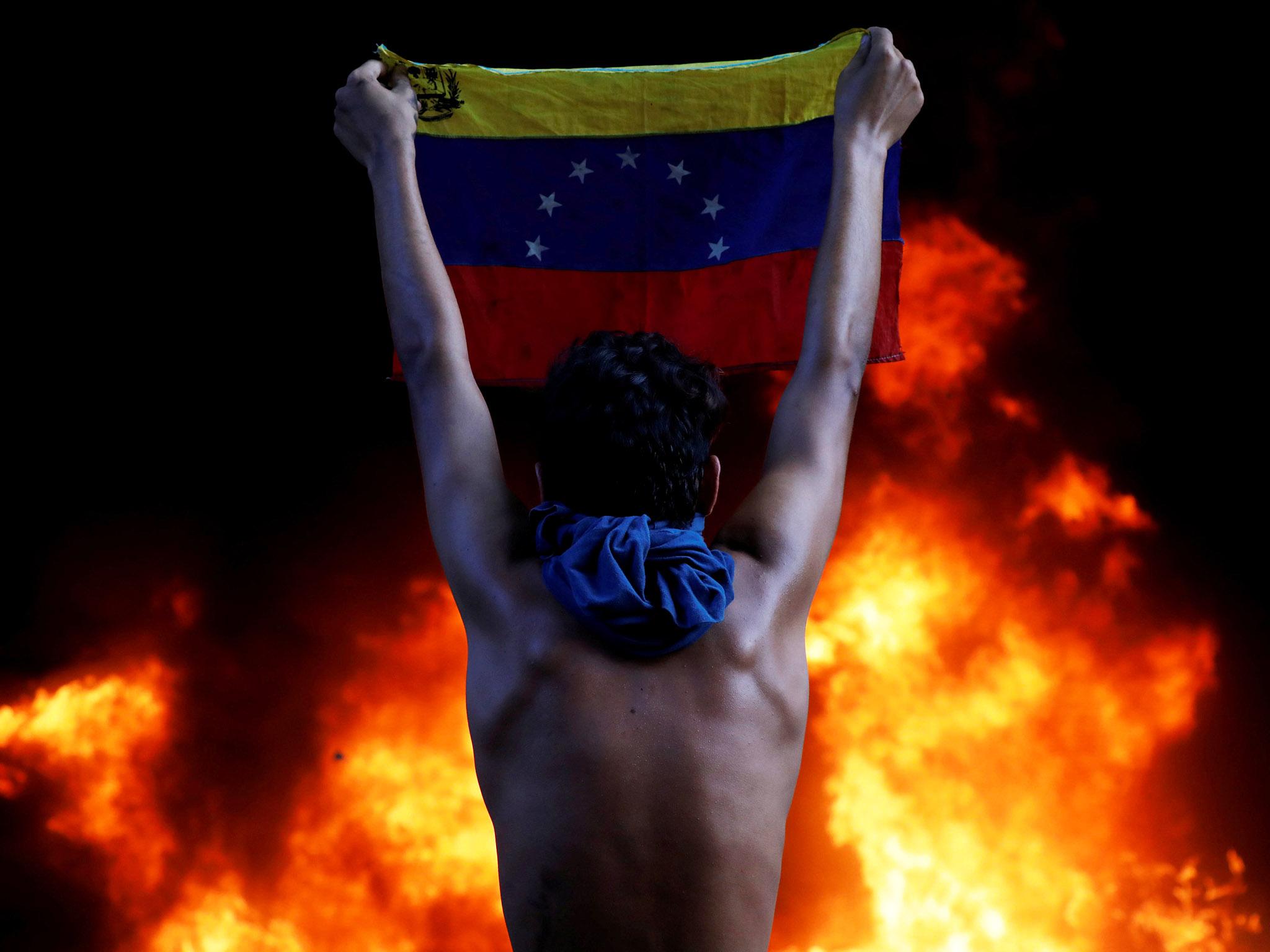A year of protests and political turmoil has pushed Venezuela to the brink
The tipping point came in March when the pro-Maduro Supreme Court took over the opposition-led National Assembly. Now, Venezuelans face a violent endgame

Your support helps us to tell the story
From reproductive rights to climate change to Big Tech, The Independent is on the ground when the story is developing. Whether it's investigating the financials of Elon Musk's pro-Trump PAC or producing our latest documentary, 'The A Word', which shines a light on the American women fighting for reproductive rights, we know how important it is to parse out the facts from the messaging.
At such a critical moment in US history, we need reporters on the ground. Your donation allows us to keep sending journalists to speak to both sides of the story.
The Independent is trusted by Americans across the entire political spectrum. And unlike many other quality news outlets, we choose not to lock Americans out of our reporting and analysis with paywalls. We believe quality journalism should be available to everyone, paid for by those who can afford it.
Your support makes all the difference.Even by the volatile and violent standards of recent times in Venezuela, 2017 was an exceptional year, a perfect storm of political and economic crisis.
Going into a fourth year of crippling recession, Venezuela’s 30 million people found themselves skipping meals, suffering shortages of basic foods and medicines, jostling in lines for ever-scarcer subsidised goods, unable to keep up with dizzying inflation rates, and emigrating in ever larger numbers.
In unprecedented scenes for the once-prosperous Opec nation, some citizens survived only by scavenging through garbage.
Not surprisingly in that context, President Nicolas Maduro’s ruling Socialists – the inheritors of Hugo Chavez’s “21st century revolution” – lost popularity on the street, and the opposition coalition sensed a chance to unseat them.
The tipping point came in March when the pro-Maduro Supreme Court essentially took over functions of the opposition-led National Assembly. Though the controversial ruling was later modified, it was a trigger and rallying cry for the opposition, which began a campaign of street protests that ran from April to July.
Hundreds of thousands took to the streets across Venezuela, decrying economic hardship, demanding a presidential election, urging a foreign humanitarian aid corridor, and seeking freedom for scores of jailed activists.
Slogans that read “Maduro, murderer!” and “Maduro, dictator!” began appearing on roads and walls around the country. Though the majority of protesters were peaceful, youths wearing masks and brandishing homemade Viking-style shields started turning up at the front of rallies to taunt security forces.
When police and National Guard soldiers blocked marches, youths threw Molotov cocktails and stones. The security forces quickly escalated tactics, routinely turning water-cannons on the protesters and firing teargas into crowds.
Guns appeared on the streets, and on several occasions security officials were caught on camera firing directly at demonstrators. Police were targeted with homemade explosives. Opposition supporters burned one man alive.
The deaths, injuries and arrests mounted. Over the chaotic months, at least 125 people died, thousands were injured and thousands were jailed.
Global opinion hardened against Maduro. Amid the extraordinary daily events, gangs burst into the National Assembly and beat up opposition lawmakers. The nation’s best-known jailed opposition leader, Leopoldo Lopez, was released from prison and placed on home arrest to the joy of his supporters, then taken back to jail, then allowed home again, all in a matter of days.
Venezuelans grew accustomed to navigating around barricades and burning streets as they tried to get to school and work. Some days, the country virtually shut down.
By the end of July, many opposition supporters feared for their lives and protest numbers dwindled. Maduro said he was defeating a US-backed coup attempt and authorities held an election, which the opposition boycotted, for an all-powerful Constituent Assembly charged with imposing order on the country.
Having failed to block the Constituent Assembly, the protests fizzled out, leaving opposition supporters nursing their wounds and planning their next moves.
They decided to tackle Maduro at the ballot box in regional elections in October, but that backfired badly when they lost most of the governorships despite polls showing they would win. The opposition alleged fraud, but their complaints did not get traction and Maduro cemented his authority.
In November, Venezuela said it planned to renegotiate its entire foreign debt, adding another dimension to the deepening national crisis.
Reuters
Join our commenting forum
Join thought-provoking conversations, follow other Independent readers and see their replies
Comments